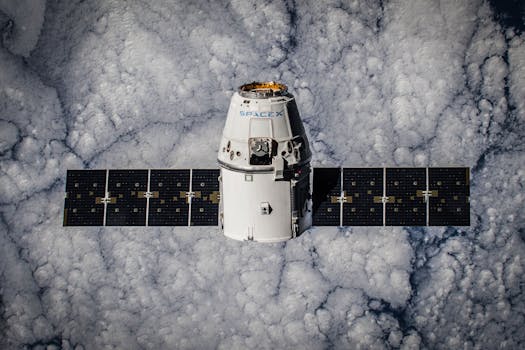
The Future of Satellites: Revolutionizing Global Communication and Exploration
The Future of Satellites is an exciting and rapidly evolving field, with new technologies and innovations emerging all the time. As we look to the future, it’s clear that satellites will play an increasingly important role in shaping our world and improving our daily lives. From enabling global communication and navigation to facilitating space exploration and scientific research, the potential applications of satellites are vast and varied.
Satellites have been a crucial part of our global communication infrastructure for decades, providing a means of transmitting data and signals over long distances. However, the next generation of satellites is set to be even more powerful and versatile, with advancements in areas such as antenna technology, propulsion systems, and solar power. These developments will enable satellites to operate more efficiently and effectively, providing faster and more reliable communication services to users around the world.
Advancements in Satellite Technology
One of the most significant advancements in satellite technology is the development of smaller, more agile satellites known as smallsats. These satellites are typically smaller than a refrigerator and weigh less than 500 pounds, making them much cheaper to launch and operate than traditional satellites. Smallsats are ideal for a range of applications, including Earth observation, communication, and scientific research, and are being used by a growing number of organizations and companies around the world.
Another key area of development is in the field of satellite propulsion systems. Traditional satellites use chemical propulsion systems, which are heavy and inefficient. However, new propulsion systems such as electric propulsion and advanced ion engines are being developed, which offer greater efficiency and maneuverability. These systems will enable satellites to operate for longer periods of time and to change their orbit and position more easily, making them more versatile and effective.
Applications of Satellites
Satellites have a wide range of applications, from enabling global communication and navigation to facilitating space exploration and scientific research. One of the most significant applications of satellites is in the field of Earth observation, where they are used to monitor the environment, track weather patterns, and predict natural disasters. Satellites are also used to provide communication services, including telephone and internet connectivity, to remote and underserved communities around the world.
Satellites are also playing an increasingly important role in the field of space exploration. They are used to study the universe, to explore new planets and celestial bodies, and to conduct scientific research. Satellites have been used to study the Earth’s magnetic field, to monitor the Sun’s activity, and to search for signs of life beyond our planet. As we look to the future, it’s clear that satellites will continue to play a vital role in shaping our understanding of the universe and our place within it.
Challenges and Opportunities
Despite the many advancements and applications of satellites, there are also a number of challenges and opportunities that must be addressed. One of the most significant challenges is the growing problem of space debris, which poses a risk to satellite operations and the environment. There is also a need for greater international cooperation and regulation, to ensure that the use of satellites is safe, sustainable, and responsible.
However, these challenges also present opportunities for innovation and growth. The development of new technologies and systems, such as satellite servicing and debris removal, is creating new opportunities for companies and organizations to emerge and succeed. The future of satellites is poised to be shaped by a combination of technological innovation, entrepreneurial spirit, and international cooperation, and it’s clear that this field will continue to evolve and grow in the years to come.




